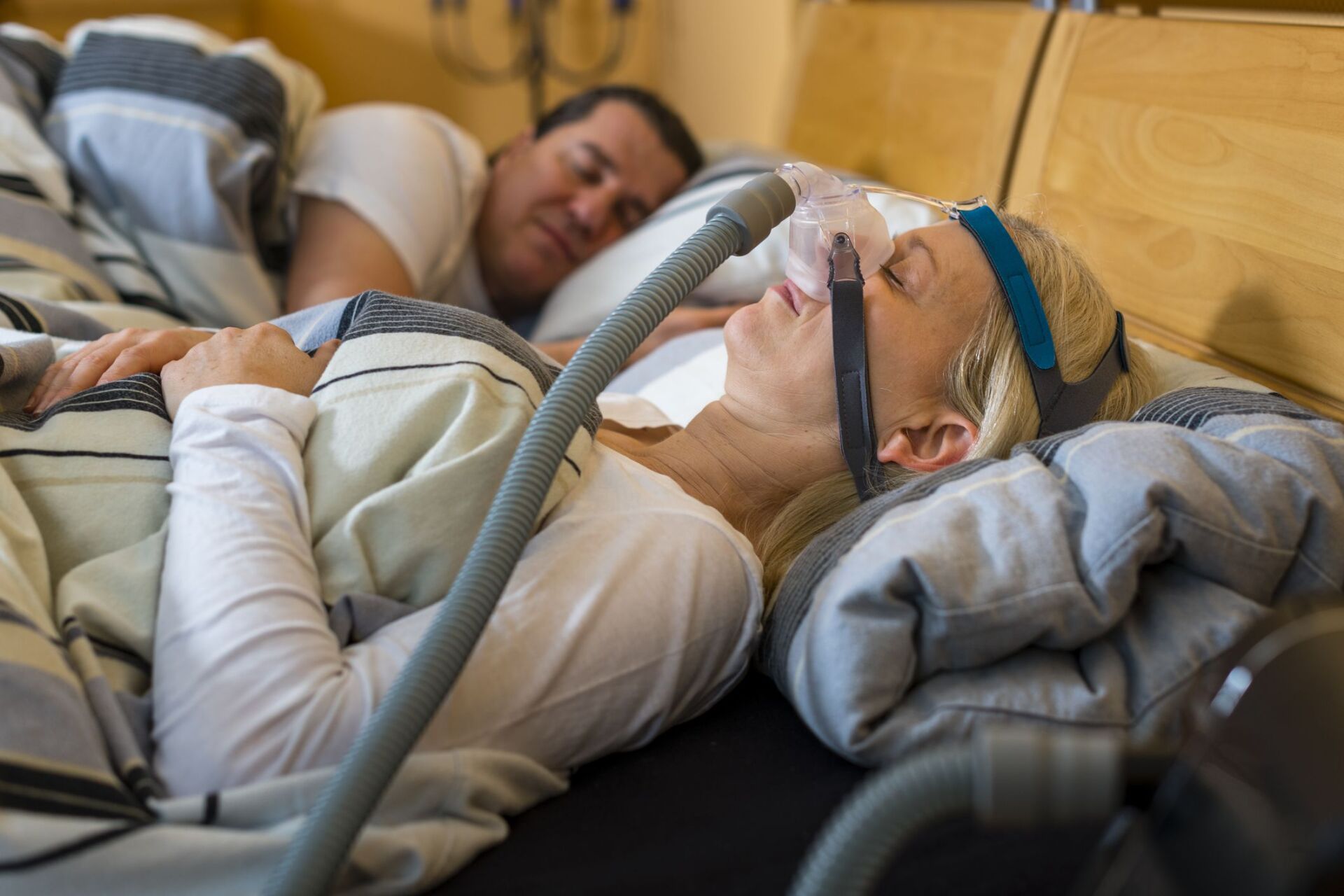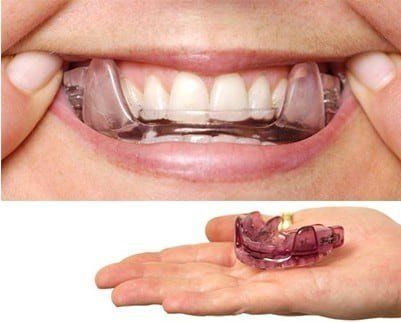SLEEP APNEA
WHAT IS SLEEP APNEA?
Sleep apnea is a serious disorder that causes you to stop breathing while asleep. Your brain protects the body by waking up just enough to breathe, but this prevents restorative and restful sleep. This cycle happens continuously throughout the night and has many negative effects, including placing stress on the heart that can have potentially deadly consequences. There are 3 types of sleep apnea;

1). Obstructive Sleep Apnea:
This is the most common form of sleep apnea. It occurs when the muscles of the head and neck relax and block off the airway.
Factors contributing to OSA:
*Excess weight and obesity-increases the pressure on the airway
*Structural causes-large tonsils/adenoids, small lower jaws, class 2 bite relationships
2). Central Sleep Apnea:
This type of sleep apnea is less common, and occurs due to a problem in your brain. Your brain is failing to communicate signals to keep breathing-related muscles working. This type of sleep disorder breathing requires CPAP/positive air pressure.


3). Mixed Apnea:
Combination of obstructions causing airway disturbances as well as failures of the brain to adequately signal the muscles to breathe.
WHAT ARE THE RISKS OF OBSTRUCTIVE SLEEP APNEA (OSA)?
HOW DO I KNOW IF I'M AT RISK?
COMMON SIGNS & SYMPTOMS ARE:
EXCESSIVE DAYTIME SLEEPINESS
LOUD SNORING
SNORTING OR GASPING DURING SLEEP
DRY MOUTH
MORNING HEADACHES
DIFFICULTY CONCENTRATING
MEMORY PROBLEMS
IRRITABILITY

WHAT ARE THE DANGERS OF UNTREATED OSA?
PEOPLE WITH UNTREATED OSA FACE HIGHER RISK OF:
High Blood Pressure & Congestive Heart Failure
- Over 50% of patients with heart failure have OSA
- People with OSA have a 30% increased risk of heart attack & premature death
- OSA is the 2nd leading cause of hypertension (high blood pressure)
Strokes
- People with OSA are 7x more likely to have a stroke
- 84% of people with OSA have nocturnal strokes
- The risk of stroke rises in more severe cases of OSA
Diabetes
- 48% of patients with Type 2 Diabetes have OSA
- 58% of older patients with Type 2 Diabetes have OSA
- Up to 86% of obese patients with Type 2 Diabetes have OSA
Mood Disorders & Sexual Dysfunction
- Up to 36% of patients with clinical depression have OSA. Rates of PTSD and anxiety are also elevated in OSA patients
- 80% of middle aged men experience sexual dysfunction; OSA can impact testosterone production
Chronic Fatigue
- 46.5% of patients with mild OSA experience excessive sleepiness
- 58% of patients with severe OSA experience excessive sleepiness
Motor Vehicle Accidents
- People with OSA are 7x more likely to have a motor vehcile accident
Obesity
- As sleep shortens or diminishes in quality, appetite for high calorie food increases
- Obesity is the best documented risk factor for OSA. It is estimated that 90% of obese males and 50% of obese females have OSA
- The prevalence of OSA increases with body mass index (BMI)
Why choose an appliance?

Better sleep better you?
The pace of modern life rarely gives you time to stop and rest. Sleep is vital to every process in the body. It affects your physical and mental functioning as well as the ability to fight disease and develop a strong immune system. Getting quality sleep is more than just spending longer in bed, it’s about uninterrupted and refreshing sleep. If you have tried traditional treatment for sleep apnea and are not feeling relief, please call for your free consultation.

Navigation
Contact Info
Phone: (725) 344-1888
Fax: (702) 260-8251
Email: info@sleepenvylv.com
Address: 8490 S. Eastern Avenue Ste A
Las Vegas NV, 89123
Connect With Us
Contact Us
We will get back to you as soon as possible.
Please try again later.
All Rights Reserved | Sleep Envy
Website designed by: Designer 1 Media